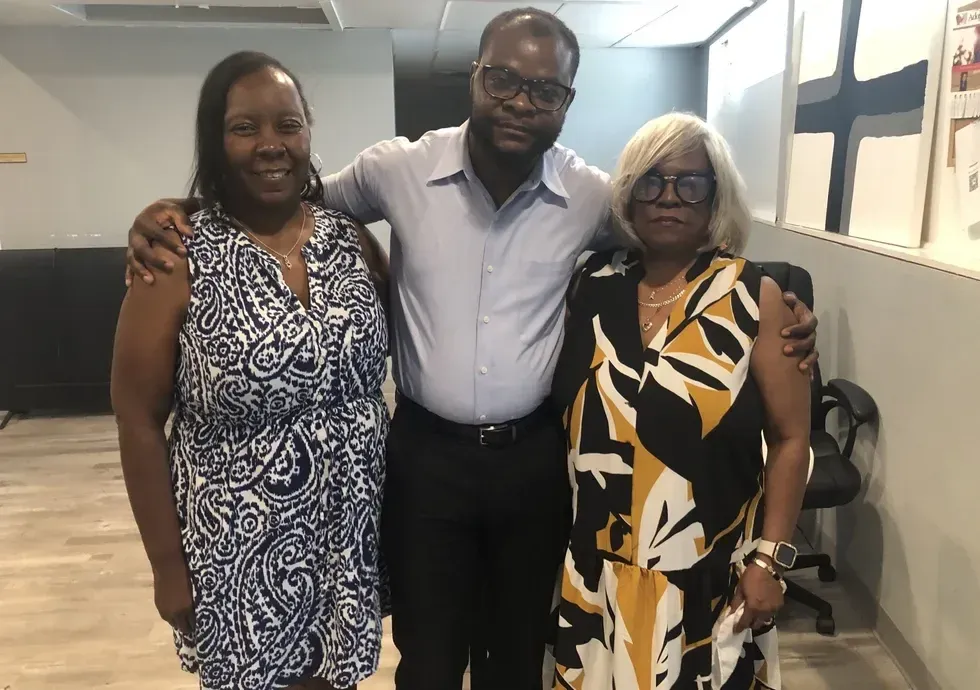
Six months ago Haitian immigrants living in Springfield, Ohio, found themselves facing unwanted attention when then-campaigning President Donald Trump and Vice President J.D. Vance spread unsubstantiated rumors about them eating their neighbors’ pets.
The dog-, goose- and cat-eating claims were swiftly debunked, but that hasn’t stopped some Springfield residents from continuing to complain about their neighbors who fled the Caribbean nation facing violence and political turmoil, leaders in the Ohio community of about 60,000 people tell Raw Story.
On top of that, the immigrants have a new fear – and deadline — looming over them in light of the Trump administration’s high profile deportations, and Department of Homeland Security Secretary Kristi Noem’s recent rescission of Haitians’ Temporary Protected Status extension.
“The community is in a mode where people are panicking because of those decisions that this current administration has been taking lately to revoke people’s legal status,” said Viles Dorsainvil, executive director and co-founder of the Haitian Community Help and Support Center.
“A lot” of Haitian immigrants in Springfield have left the city looking for protection from deportation, Denise Williams, president of the Springfield chapter of the NAACP, told Raw Story.
“They were fearful that they would get deported back to Haiti based on my understanding,” Williams said.
Others are “concerned” amid this “time of uncertainty” but have chosen to remain in Springfield due to lack of safety in Haiti, Dorsainvil said.
“They still keep doing everything that they have been doing, even though they are afraid,” said Dorsainvil, who left Haiti himself in 2020. “But what should they do? They have to keep moving forward.”
 Sheila Fambro, Viles Dorsainvil and Denise Williams at the Haitian Community Help and Support Center. (Photo by Alexandria Jacobson/Raw Story)
Sheila Fambro, Viles Dorsainvil and Denise Williams at the Haitian Community Help and Support Center. (Photo by Alexandria Jacobson/Raw Story)
In February Noem vacated a decision under former President Joe Biden that provided an 18-month extension to Haitians’ Temporary Protected Status, moving up the expiration date from February 6, 2026 to August 3, 2025. Temporary Protected Status allows immigrants from countries facing unsafe conditions such as armed conflict or natural disasters to temporarily avoid deportation and obtain employment authorization.
“President Trump and I are returning TPS to its original status: temporary,” Noem said in a news release from the Department of Homeland Security on February 25.
Spokespeople for the Department of Homeland Security did not respond to Raw Story’s request for comment.
Adriel D. Orozco, senior policy counsel for the nonprofit American Immigration Council, said the Noem’s decision “didn't actually adequately take into account that the conditions have only worsened in Haiti.”
“There are armed groups who are now in control over 90 percent of the capital city, Port-au-Prince,” Orozco told Raw Story. “There are widespread kidnappings, sexual violence and indiscriminate killings, so we think particularly for the Haitian community but there are many reasons why the government would want to continue to protect these populations from returning them to that particularly destabilized situation.”
Sheila Fambro, a pastor at House of Prayer in Springfield, told Raw Story that the Springfield community remains “divided” over its Haitian immigrant population, which grew to 15,000 to 20,000 people since the COVID-19 pandemic began, according to city officials. A handful of residents still complain about their Haitian neighbors at every city hall meeting, but others have spoken up to defend the immigrants, she said.
“They are afraid. They come from a country that is very violent. They came here to get away from that,” Fambro said.
Representatives from the City of Springfield did not respond to Raw Story’s request for comment.
A decision from a federal judge Monday blocked the Trump administration from stripping 600,000 Venezuelans of their Temporary Protected Status, which could signal hope for Haitians hoping to avoid deportation as well.
“They are here legally, so I would definitely have something to say if they come here and try to deport these guys when they are here legally,” Williams said.




